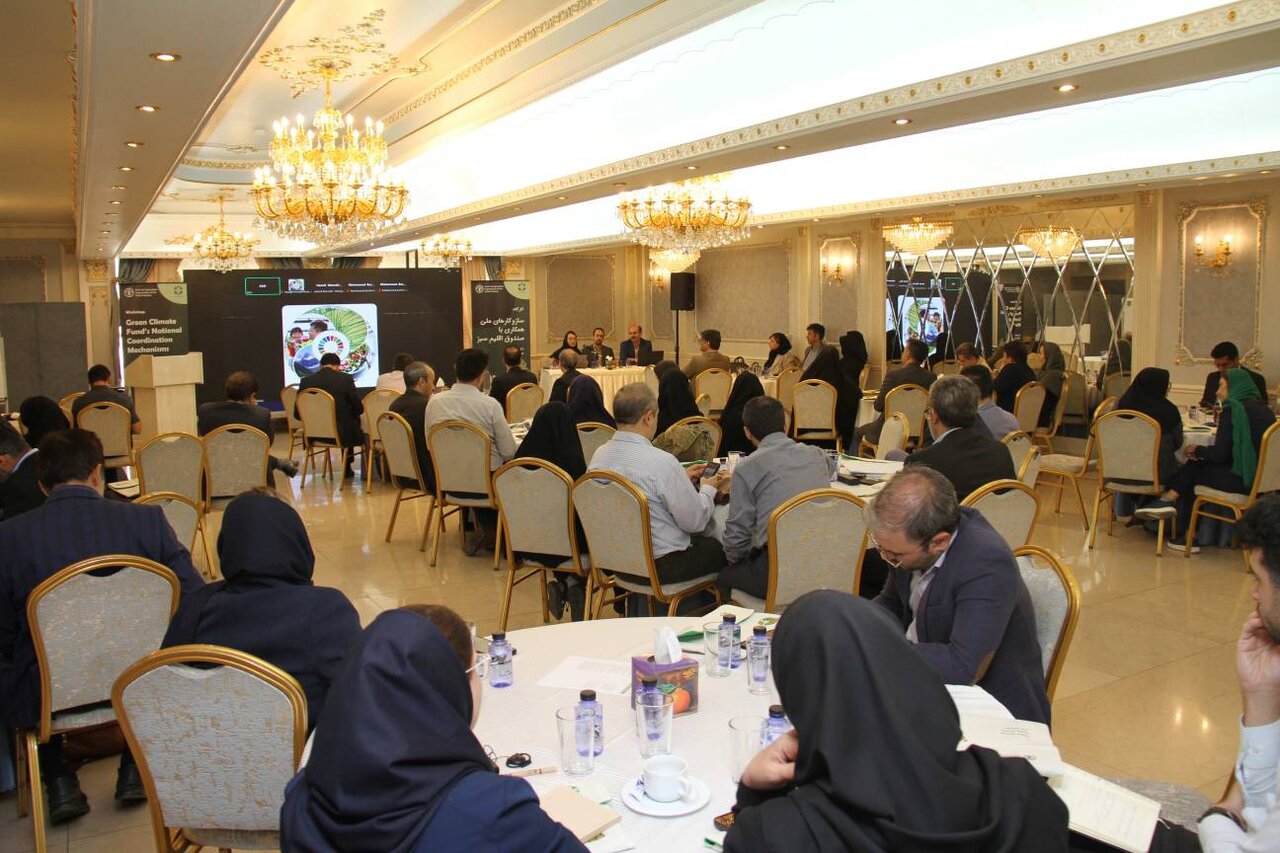FAO, DOE hold workshop to facilitate Iran’s engagement with GCF

TEHRAN – Food and Agriculture Organization (FAO) in cooperation with the Department of Environment (DOE), serving as Iran’s National Designated Authority to the Green Climate Fund (GCF), has held a workshop to explore effective national coordination mechanisms vital for facilitating stronger engagement with the GCF and other multilateral climate finance institutions.
Organized under the GCF-funded project titled “Strengthening Iran’s access to GCF with national ownership, knowledge-based policies, and sound technologies,” the workshop is part of broader efforts to strengthen Iran’s institutional readiness to effectively access and utilize climate finance, the FAO website announced in a press release on June 11.
In a message delivered on his behalf, Farrukh Toirov, FAO Representative to the Islamic Republic of Iran, emphasized the importance of readiness programs in supporting partner countries. “Initiatives like this are relatively new frameworks launched by multilateral institutions to help countries enhance their climate financial planning and institutional capacity.”
“Key activities under the Readiness II project include identifying national adaptation and mitigation priorities, conducting Technology Needs Assessments, preparing Technology Action Plans, developing a National Low Carbon Management Plan, and formulating a Direct Access Strategy. The success of these components relies on the active involvement of Iran’s National Climate Change Working Group (NCCWG) and National Climate Change Finance Committee (NCCFC),” he further noted in his message.
Toirov’s message concluded by underscoring the significance of the event, adding, “This workshop marks an important milestone in our joint efforts to support Iran’s climate resilience. We hope it becomes a platform for long-term, constructive collaboration—anchored in national ownership and guided by international best practices.”
The event drew the participation of key stakeholders, including representatives from government agencies, technical experts, and members of national coordination bodies, reflecting a shared commitment to advancing Iran’s climate agenda through inclusive and coordinated efforts.
GCF to strengthen climate resilience
Signed in August 2024, the project, titled “Strengthening Iran’s access to GCF with national ownership, knowledge-based policies, and sound technologies,” represents a crucial step towards aligning national strategies with climate action and promoting sustainable development.
Iran, like many nations, faces the challenge of climate change and is grappling with its adverse effects, including escalating droughts and catastrophic floods, further exacerbating water scarcity issues affecting ecosystems, biodiversity, food production, and the economy.
In response, Iran’s National Strategic Action Plan on Climate Change 2017 outlines a comprehensive roadmap for climate adaptation and mitigation, contingent upon securing financial and technical support under the United Nations Framework Convention on Climate Change (UNFCCC).
This transformative initiative between the Islamic Republic of Iran, GCF, and FAO aims to fortify the country’s resilience to climate change through a multifaceted approach.
By fostering closer coordination with GCF and other climate finance institutions, establishing direct access to GCF resources, and integrating climate change considerations into development planning, the project seeks to pave the way for strategic climate investment promotion.
Additionally, by facilitating access to advanced climate-resilient technologies and engaging both targeted sectors and the private sector in climate action initiatives, Iran aims to develop a robust pipeline of climate projects aligned with national priorities and GCF standards.
Anticipated outcomes include enhanced national coordination mechanisms, the development of a strategy for direct access to the GCF, an updated GCF Country Programme, and the establishment of a comprehensive National Climate Change Knowledge Hub (NCCKH).
The establishment of NCCKH will serve as a vital resource for disseminating technical knowledge and raising public awareness, ultimately contributing to enhanced national resilience and sustainable development.
MT/MG
Leave a Comment